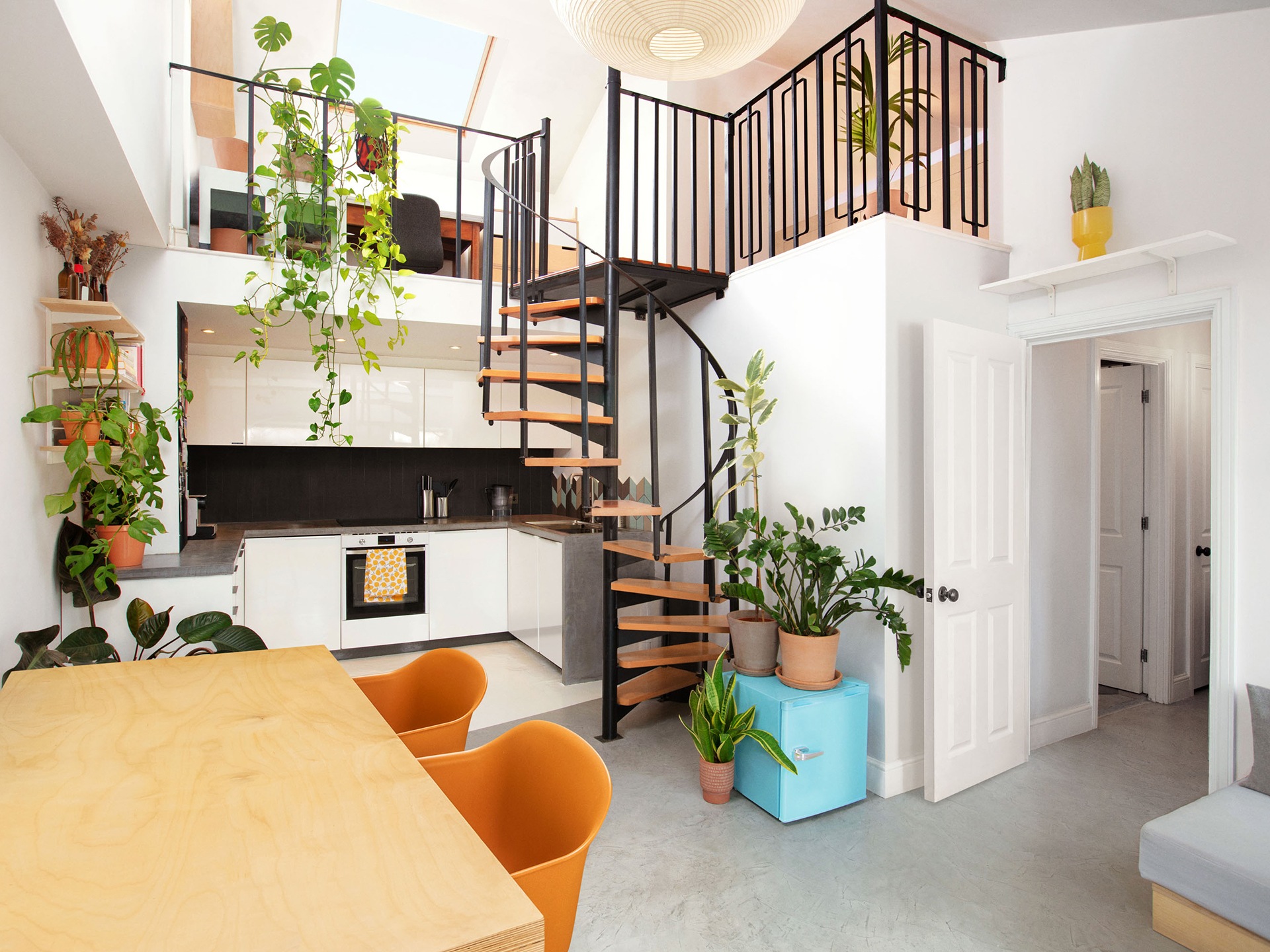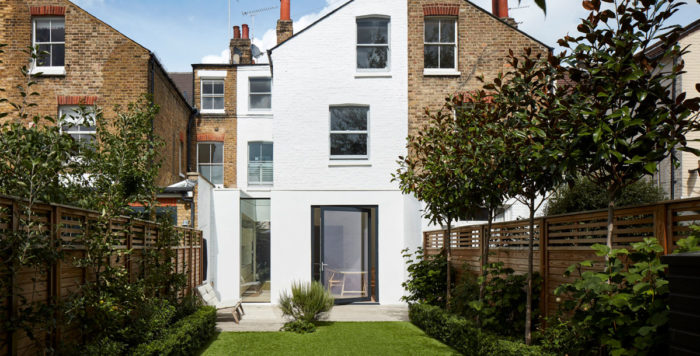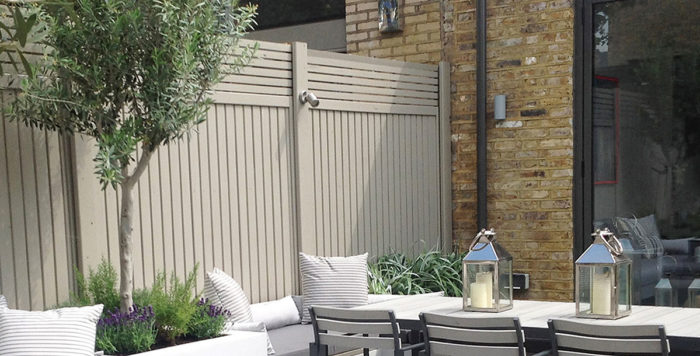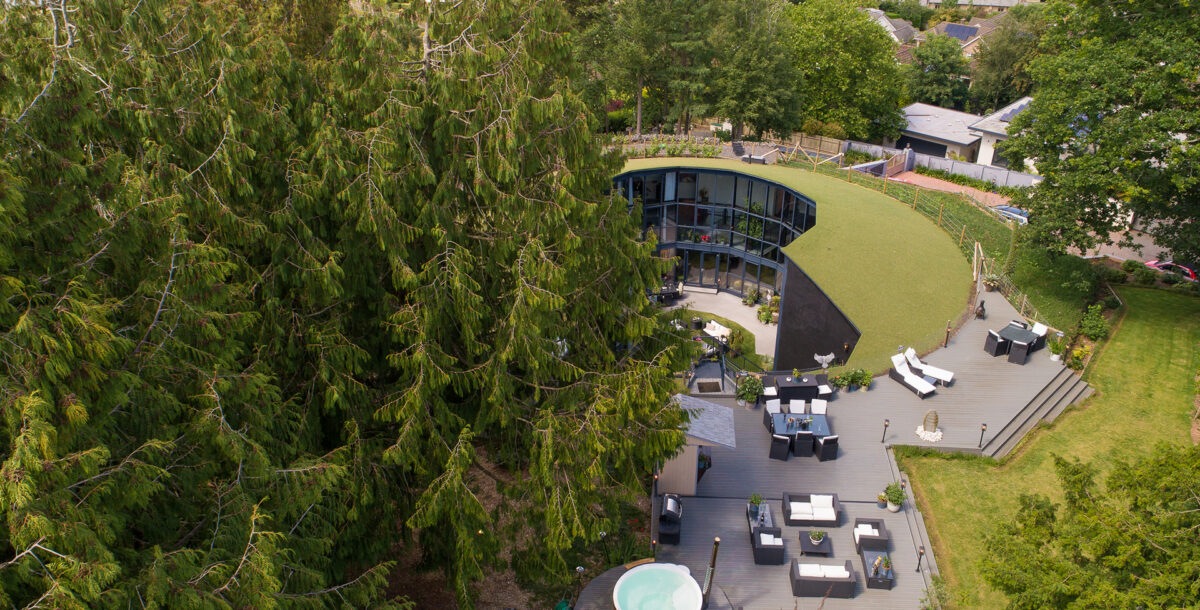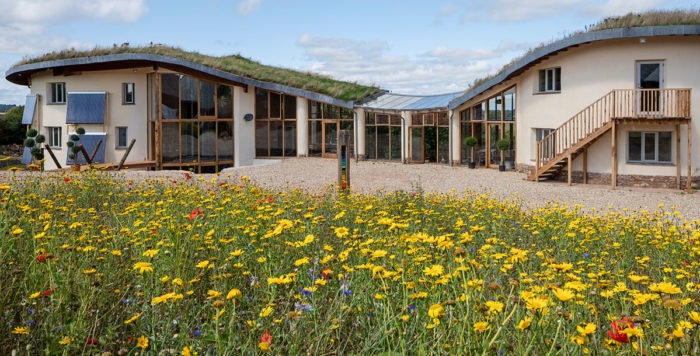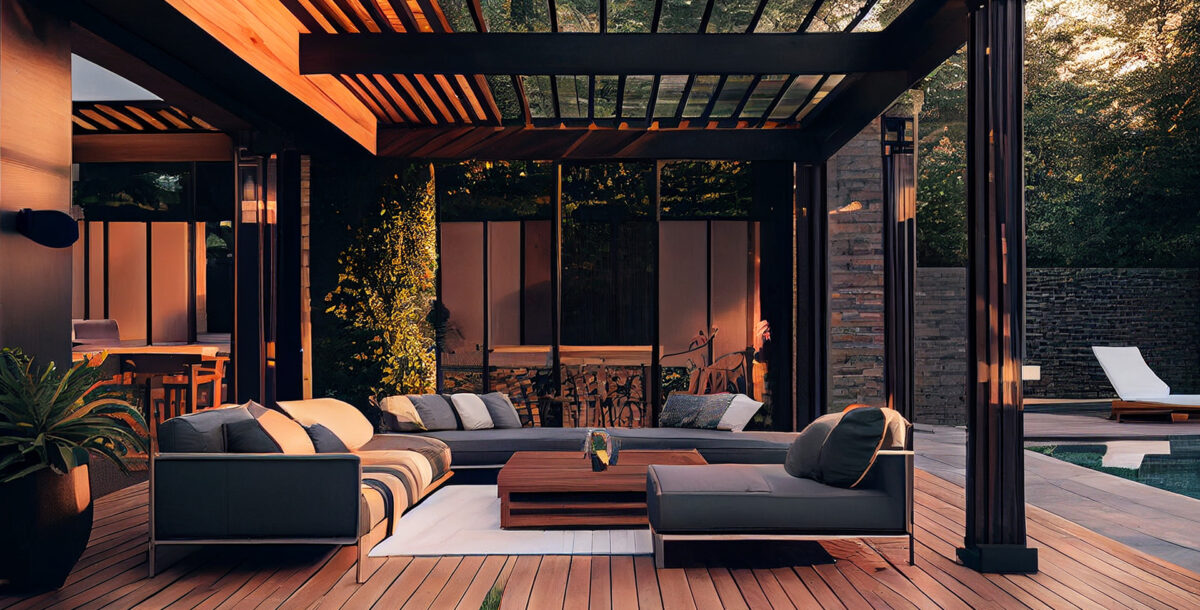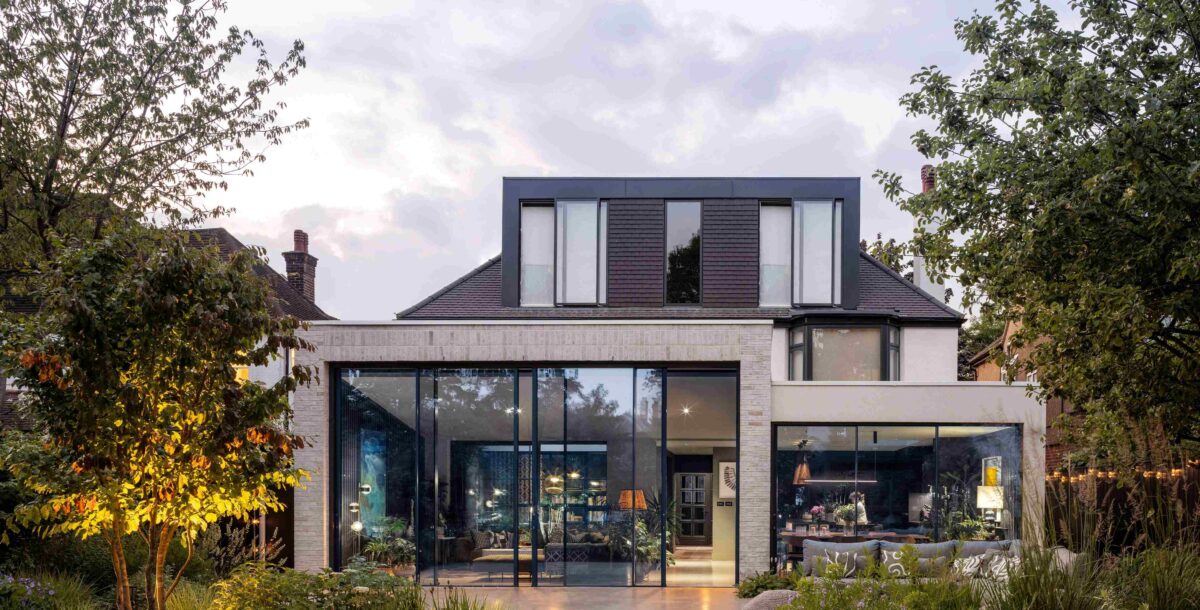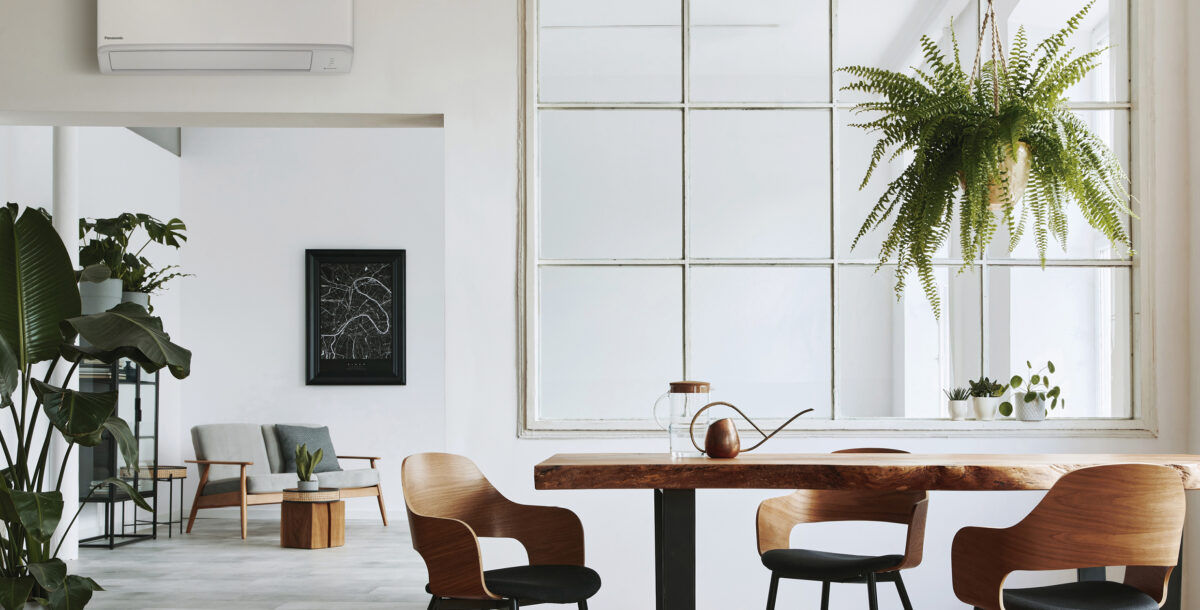Turning your home into an Airbnb: how to prepare your property
Pretty much anyone with a spare room has considered listing in on Airbnb, but what’s really involved in the world’s favourite side hustle? We’ve got the lowdown on how to prep your place for the short-term rental market
Thinking of turning your home into an Airbnb? Short-term renting is bigger business than ever – with 5 million Airbnb hosts around the world and 8 million active listings.
To date, there have been over 1.5 billion guest stays with Airbnb and hosts have earned nearly £200 billion – that’s before including all the stays arranged through other platforms, such as Booking.com, and those booked direct with owners.
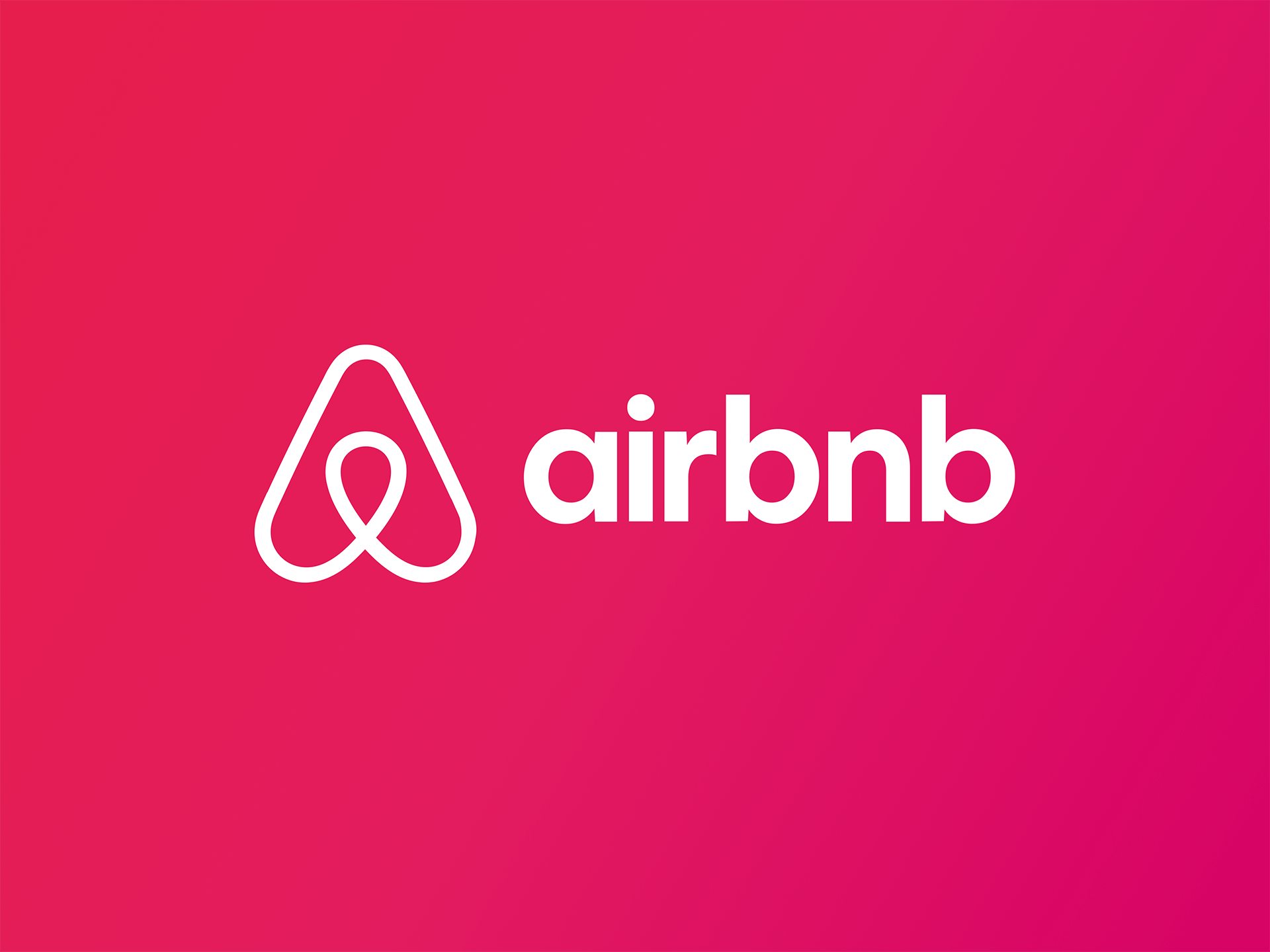
So, whether you’re looking to invest in a second property to rent out, or just want to see if you can earn a bit of extra cash from your back bedroom, it’s worth looking at how to go about getting the best out of your place on online platforms like Airbnb…
Are you even allowed to host?
Before getting too invested in the idea of hosting – or investing too much money – it’s vital to check that you are actually allowed to host in the space you have plans for.
Remember, some leases, rental contracts, and community rules prohibit hosting or subletting. If you live in an area with a residents’ association or similar, it may have rules about subletting.
Similarly, if you have a mortgage, you will need to let your mortgage know what you plan to do.
Meanwhile, many social-housing landlords have an outright ban on subletting or hosting.
If you already have a house mate, what do they think of the idea, and do you need to put a formal agreement in place with them to cover their role in the arrangement, covering things like expected etiquette and how often you will be hosting?
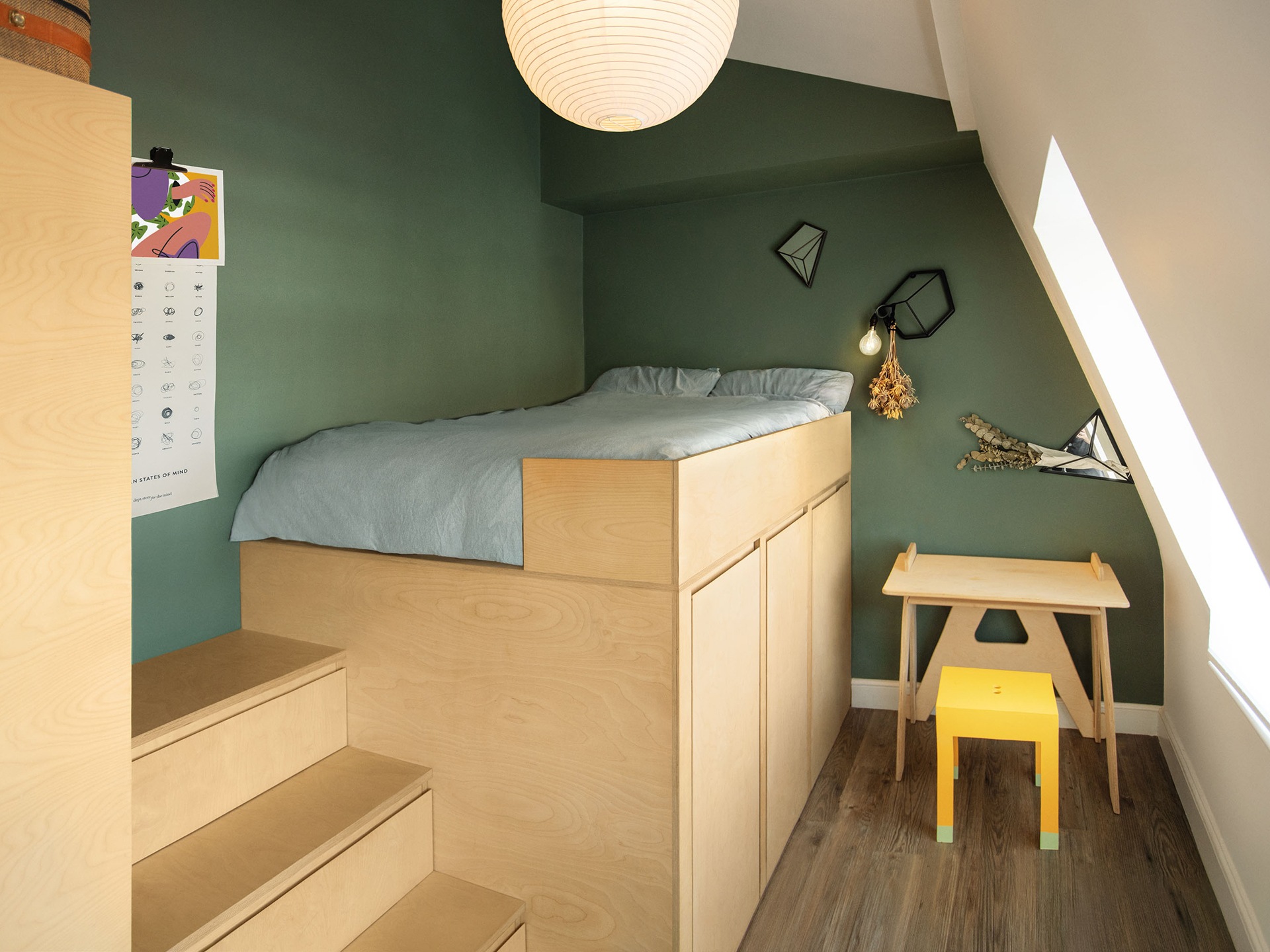
A favourite Airbnb property in London. Image credit: Airbnb
Rules and laws
Before you start, it’s also vital you familiarise yourself with the rules and regulations you will need to follow. There are national regulations, such as statutory fire safety rules. But you also need to check the rules on short-term renting in your area as these vary from place to place.
For example, in London you need planning permission if you want to rent out a property for more than 90 days a year, while in Scotland you need a licence before you can start doing short-term lets. So, before doing anything, contact your local council to ask about the rules on short-term renting where you live.
New regulations
Be aware too that there are upcoming rules on the horizon that will require all short-term rental properties in the country to be registered.
The idea is to give local authorities the ability to enforce standards and keep a check on the number of properties being rented out. It looks likely properties used primarily for short-term rental will be put in a new planning class and may require planning permission.
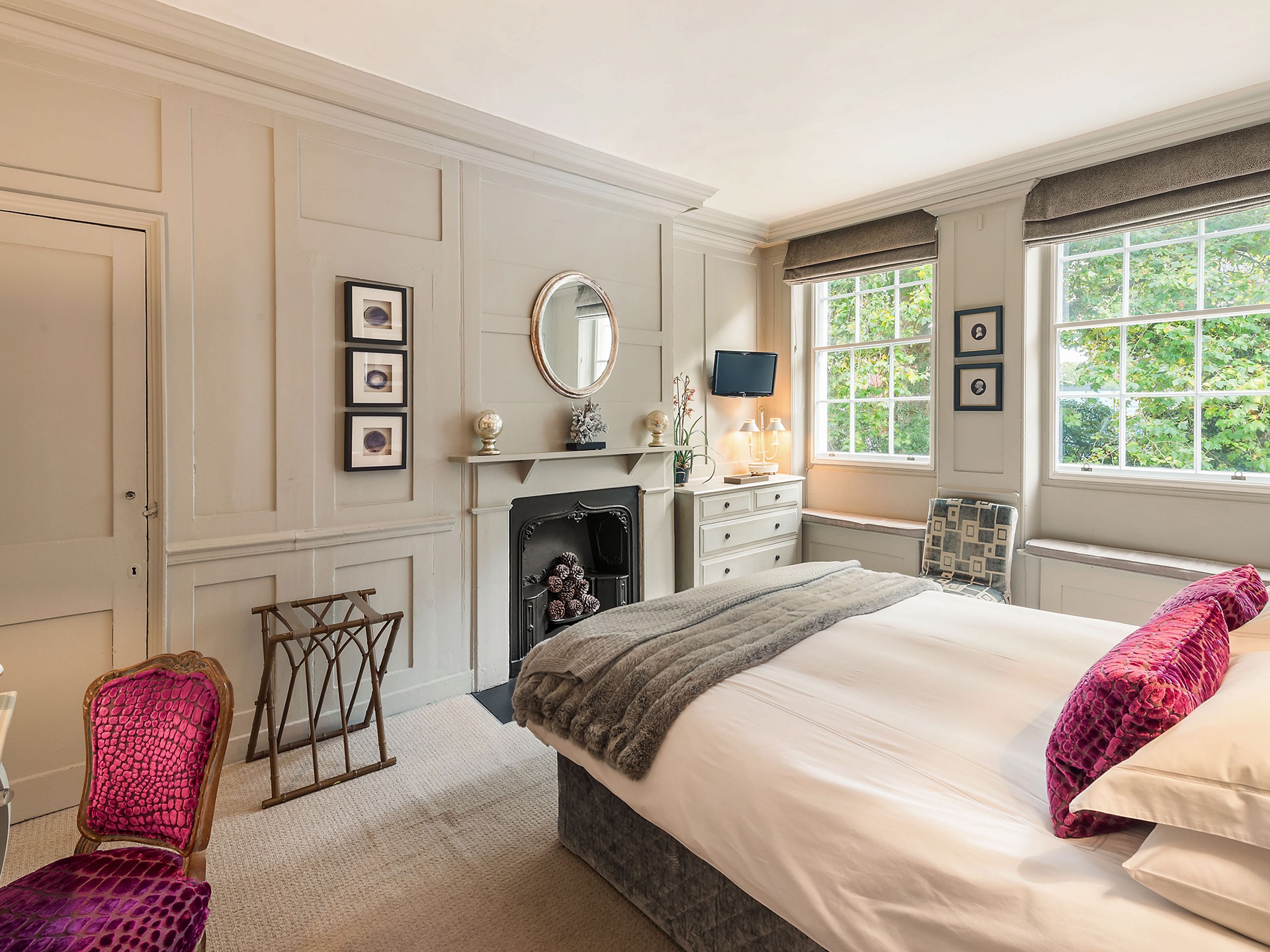
This beautiful room is unsurprisingly another guest favourite. Image credit: Airbnb
Get the basics right
Once you know you can go ahead, the first steps in getting your space ready to rent are repairs, cleaning, and decluttering.
Do all those repairs you have been meaning to get round to so everything will work perfectly when your guests arrive. If cleaning is not your forte, invest in a professional deep clean.
Buy a cupboard lock or two to lock away any belongings you don’t want guests using.
Your property needs to be safe, that means you need to do everything from getting the heating system serviced regularly to checking the batteries in your smoke and carbon monoxide alarms.
Do a risk assessment of potential hazards and eliminate and mitigate where you can. Set up a maintenance calendar to remind you when routine maintenance tasks are due.
Interior design
There are two distinct approaches when it comes to short-term rental décor. Some Airbnb hosts prep their properties by stripping right back to basics. Others aim to set their place apart by making it as characterful as possible. Each approach has its advantages.
With the ‘stripped back’ approach, you are risking less financially: basics from stores like IKEA are cheap and easy to replace and will appeal to a wide range of guests. But a more personal, characterful look may enable you to charge a premium rate for your room, or secure more bookings in an area with lots of competition.
Either way, property expert Abi Hookway points out, “Since short-term rentals experience more frequent guest turnover, choosing durable materials and furniture that can withstand wear and tear while maintaining a high-quality feel is important.”

Redmayne House in Kirkby Stephen is part of Abi Hookway’s portfolio of holiday lets. Image credit Abi Hookway
Melissa Denham, from Hammonds Fitted Furniture says, “Everyone has different tastes when it comes to interior style, so keeping your accents and décor simple and tasteful is most likely to appeal to everyone. Natural shades of warm white, beige and pale grey offer a boutique-hotel vibe that is relaxing and calm.
“Sticking to warm, neutral tones for walls and floors means you can adapt your guest bedroom décor to suit the seasons. For example, you can bring out soft, pastel-coloured bed linen and accessories for spring and summer, and then switch to rich crimson, teal or forest-green soft furnishings during the winter months.”
Sam Greig, from Swoon, advises, “To achieve that put-together, bespoke-designed look, combining multiple furnishings from the same family works exceptionally well. Having your dresser, bedframe, wardrobe, and bedside tables match in one way or another – whether that be through material, colour, or general style – can help to pull the room together, giving that desired hotel vibe.”
Abi Hookway says, “Incorporating local touches, such as regional art or maps, to teach and impress guests will leave a lasting impression.”
Here’s a round-up of Airbnb hosts who have embraced some of the latest interiors trends. And here are some of the best looking places currently available on the app.
Sue Ilic, who runs courses in holiday letting, says, “It’s about the thoughtful touches that guests truly appreciate.
For example, a Nespresso machine adds a touch of luxury, while high-speed Wi-Fi and good-quality routers are essentials for modern travellers. Small details, like phone chargers beside the bed, make a world of difference.” Then there are those basics that no sensible host would go without: mattress and pillow covers. And you’ll want spare towels, covers and pillows available for guests.
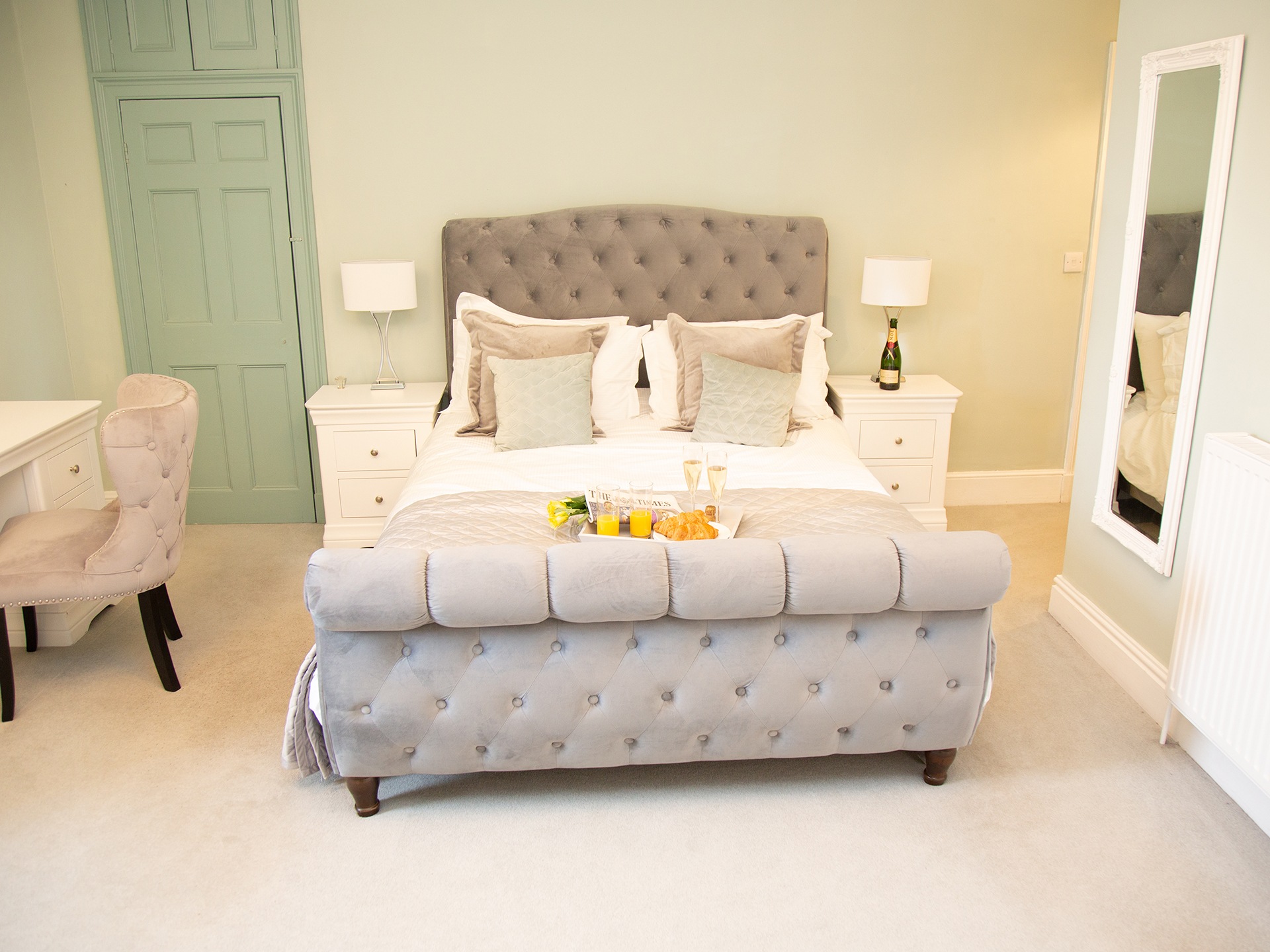
Boutique hotel style is always appealing to guests. Image credit: Abi Hookway
Extra touches
Abi says, “Guests love amenities like hot tubs, wood burners, and puzzles – cosy touches that create a memorable stay.” Her other top tips for happy guests?: “Clear communication, especially about the property’s location, is key to a great guest experience.
“I always ensure the refreshment station is stocked with tea, coffee, water, and biscuits to give guests that home-away-from-home feeling. Outdoor space is another priority.”
Joby Mussell, at holidaycottages.co.uk points out, “[For us] properties with hot tubs secured 22% more bookings.” Read our hot tub buyer’s guide if you’re thinking of getting one.
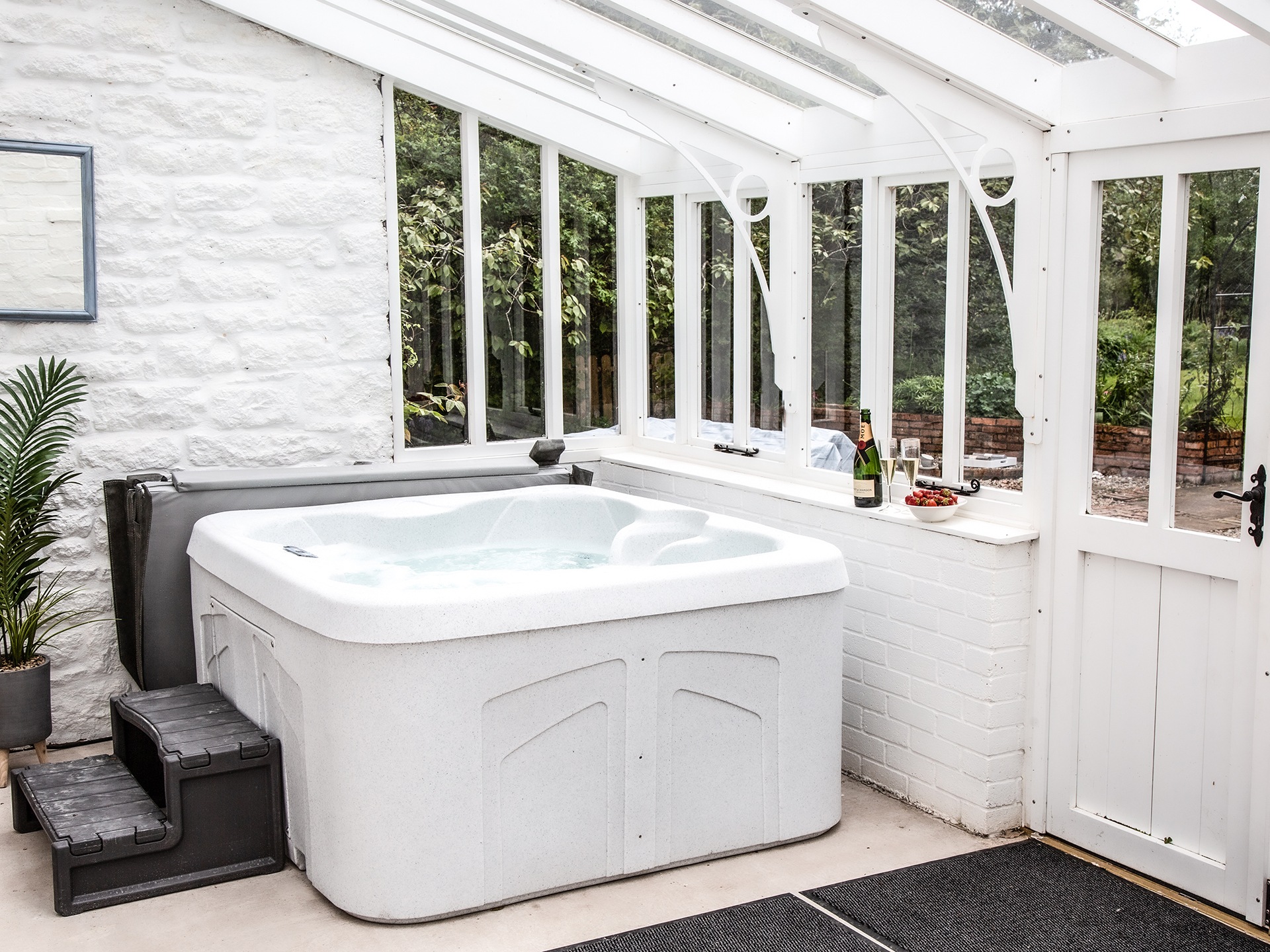
Hot tubs are popular with guests. Image credit: Abi Hookway
Themed accommodation
Pierre-Camille Hamana, from Hospitable, says, “One of the best ways to become a successful Airbnb superhost is by finding your niche and really leaning into it.
Travellers today aren’t just looking for a place to sleep, they want something memorable and unique – something different from the rest.
By giving your property a theme or focus, you can offer an experience that stands out from the crowd. We have a great example from one of our customers who created a Taylor Swift-themed apartment. It’s a hit!
The place is always booked because it really speaks to a specific group of guests who are big fans of the artist. That kind of creativity and attention to detail goes a long way in drawing in guests and keeping them coming back.”
Employ a designer
There are interior designers who specialise in rental properties. If you’re not confident of your design skills, it could be worth getting some professional help to give your space an appealing, cohesive look.
Security
When it comes to managing the property, letting guests check themselves in – access the property without you being there – makes for an easier life. For that you will need a lock box to put the key in.
Or you could go for smart lock. David Joyson, of specialist insurer Homeprotect, says, “Installing smart locks can allow homeowners to change the access code for each guest and receive entry and exit logs.
This also eliminates the need for physical keys which will reduce the risk of unauthorised access.”
A video doorbell – think about getting one without a monthly subscription – will give you the option to check who’s checking in. David says, “While cameras cannot now be used inside properties let via Airbnb, external cameras are permitted, and can offer a way to monitor the comings and goings at your property.”
Other smart gadgets
Smart gadgets can be the Airbnb host’s best friends, for example:
- smart cabinet locks such as the one from Yale let you to lock or unlock a cupboard remotely
- remote property-monitoring devices such as Minut (which requires a subscription) allow you to monitor your place when you’re not there, including noise levels, occupancy levels (based on the number of mobile signals detected), whether anyone is smoking
- smart thermostats let you know what’s going on with the heating and temperature – and make adjustments remotely if necessary…
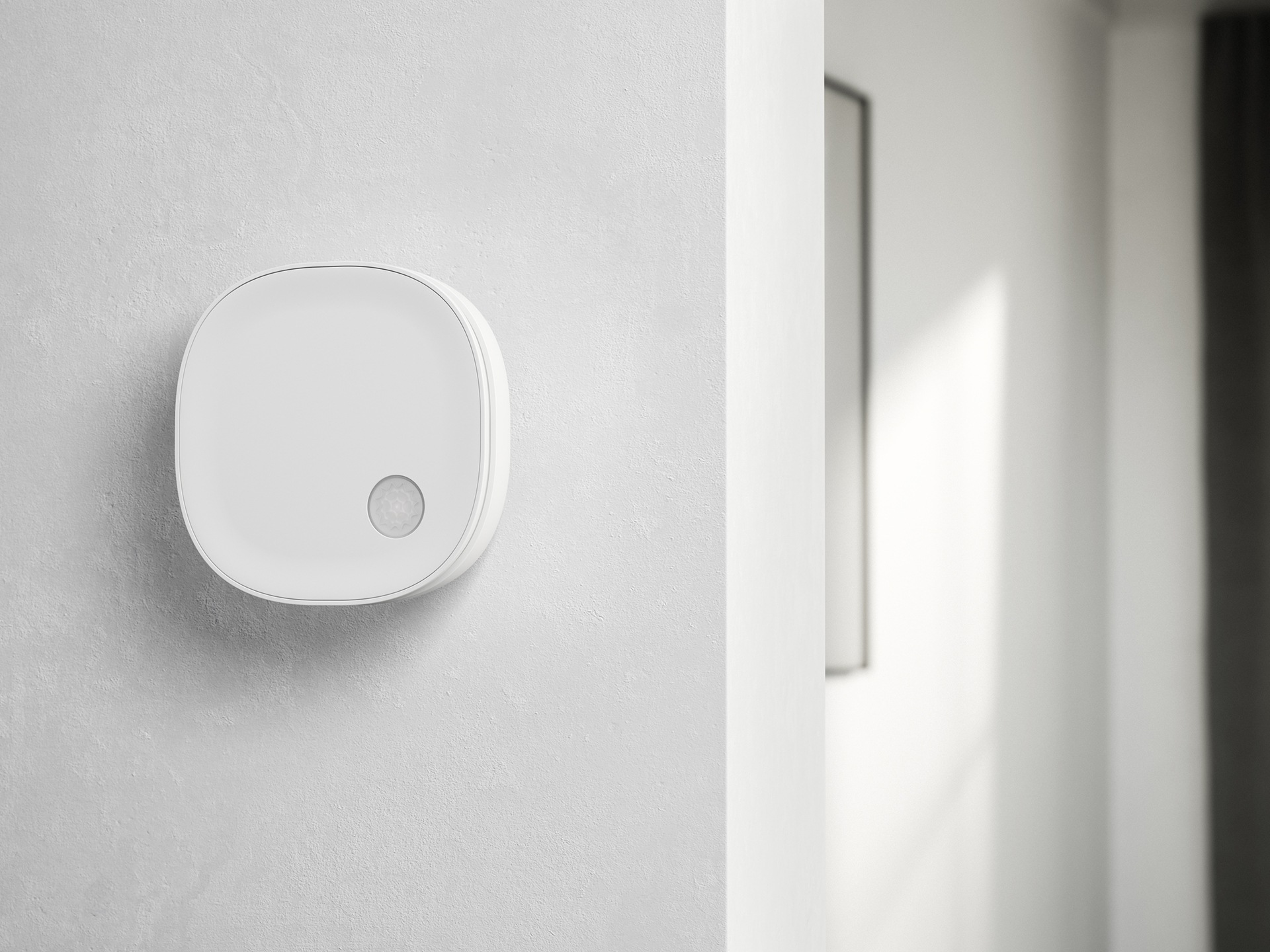
A Minut monitoring device allows remote monitoring of noise, temperature and number of occupants. Image credit: Minut
Staging
Once everything’s ready for your guests, it’s time to take some photos. And the photos are all important.
As Claire Carter, at John D Wood, emphasises, “Guests book with their eyes, so great photos really sell the space.” Declutter, get the place tidy, and spotless, and stage it in the same way you would if you were looking to sell it.
Abi Hookway explains, “Many assume staging is only for high-end properties, but it’s crucial for attracting guests to holiday lets. When listing your property on platforms, thoughtful staging enhances the appeal.”

Staging your property for the photos can make all the difference. Image credit: Abi Hookway
Photos
Airbnb has some photos tips here, or look for a tutorial online showing how to show your place in the best possible light. If you can afford it, get professional photos taken.
Airbnb also has a special platform called Elevate to connect hosts with professional photographers.
Jody Mussell suggests, “Investing in seasonal photography and updating the wording of your listing can further help guests imagine what it might be like to stay at different times of the year. Seasonal shots of the exterior with changing colours of the leaves or an image of a roaring log burner can all help elevate your holiday let.”
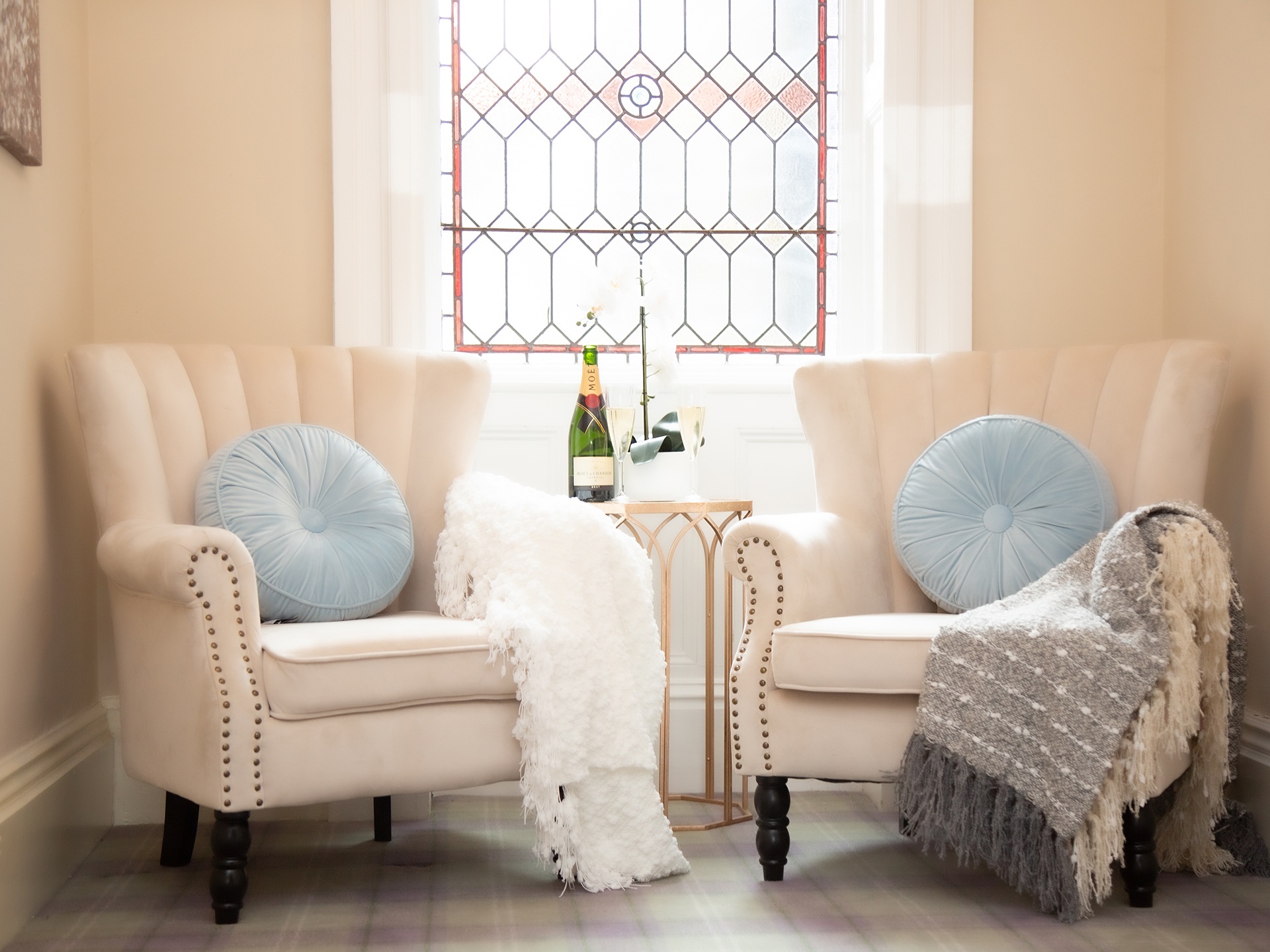
Extra touches like cosy throws make all the difference. Image credit: Abi Hookway
Description
Similarly, it’s really important to write a good description of your property, accentuating all its good points, amenities, and local attractions.
Don’t shy away from mentioning things that might be an issue for some guests, too. For example, if it only has a shower, mention this so that anyone for whom soaking in a hot bath is an end-of-the-day essential will know to go elsewhere (and won’t be left writing you a bad review out of frustration).
Pet friendly?
Another thing to consider is whether you are going to accept bookings from guests with dogs. Joby Mussell says, “Allowing dogs to stay in your holiday home will not only increase your pool of potential guests, but this will also help increase the number of bookings too.”
He cites one property on his company’s books, Cobbledicks House in Newbridge, Cornwall, which secured a significant increase in bookings by enclosing the garden and increasing the number of dogs allowed to four.
He says, “Simple additions such as leaving complimentary dog treats and poop bags, through to providing dog bowls, towels and even a dog bed for the duration of the stay, can all go a long way when it comes to providing added convenience to guests, while being relatively easy wins. If your listing can claim it has a secure garden and spotlights nearby walks, so much the better.
“And for the ultimate pampering, why not consider installing a dog wash?”
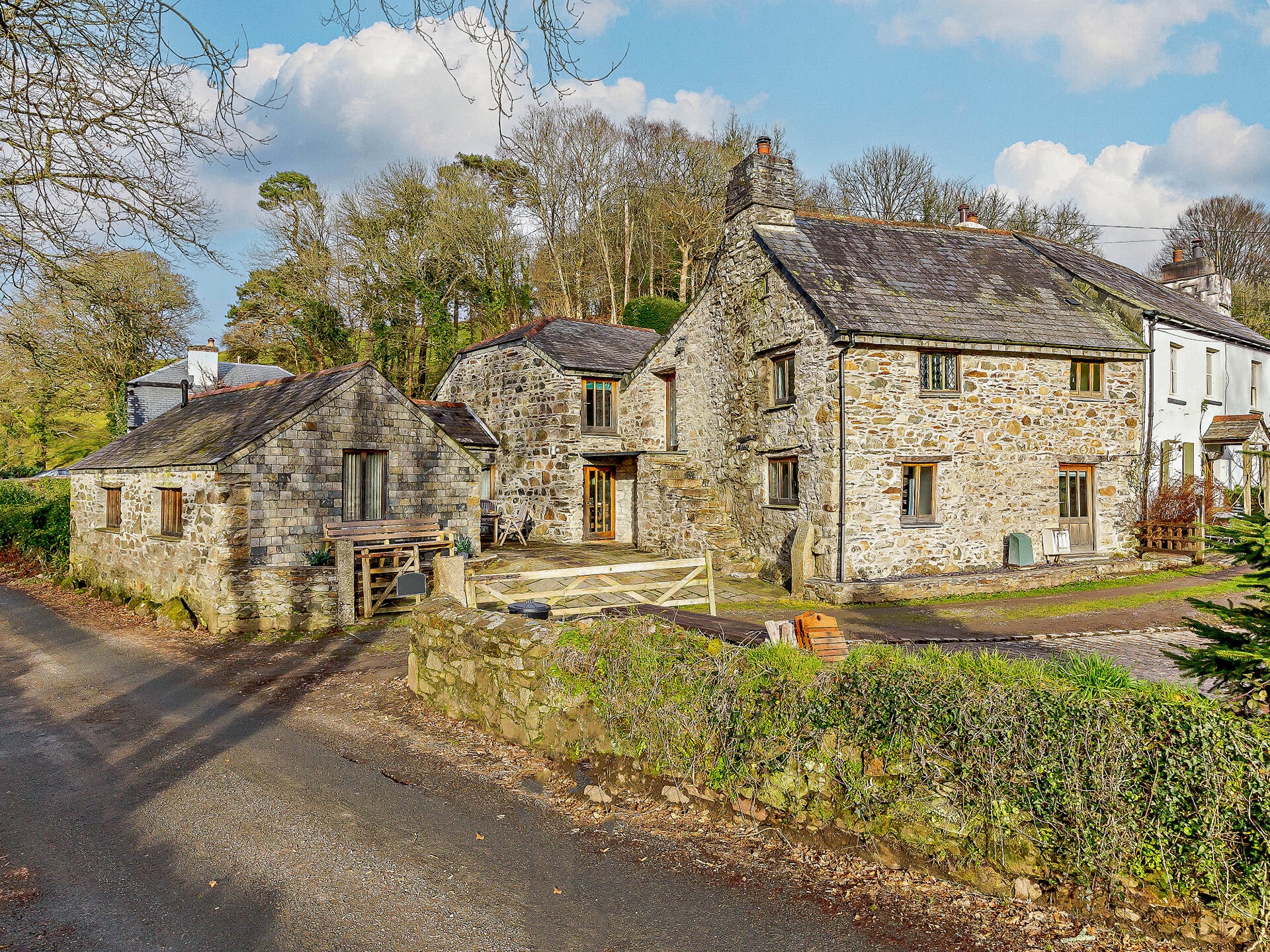
Cobbledicks House in Cornwall increased bookings by becoming more dog friendly. Image credit: Cobbledicks House
Get on the apps
When it comes to managing your property, there is a whole array of specialist apps to help you.
Apps like Pricelabs help you with dynamic pricing to maximise income, and property management tools like Hospitable and eviivo help hosts manage their bookings and communication with guests. Michele Fitzpatrick, from eviivo explains, “Property management systems enable hosts to collect critical data on guest preferences. With these insights, they can offer more personalised services during the stay and retarget guests for future bookings with tailored offers that speak directly to their interests. This data-driven approach not only boosts guest satisfaction but also fosters loyalty and drives repeat bookings.”
Insurance
Hosts are provided with some basic insurance coverage against damage and liability through Airbnb’s own Aircover scheme, but you will need to get your own liability and damage insurance too. And, if you’re letting out a room in your home, it’s important your insurer knows what you’re up to, otherwise your standard home insurance policy might well be void.
Maximising your income
Once you’re up and running, experiment with different prices and offers to find what works for your property.
Joby Mussell says, “Our data at holidaycottages.co.uk shows that holiday lets that offer shorter stays on average secured at least 21% more bookings throughout the year than those that don’t.”
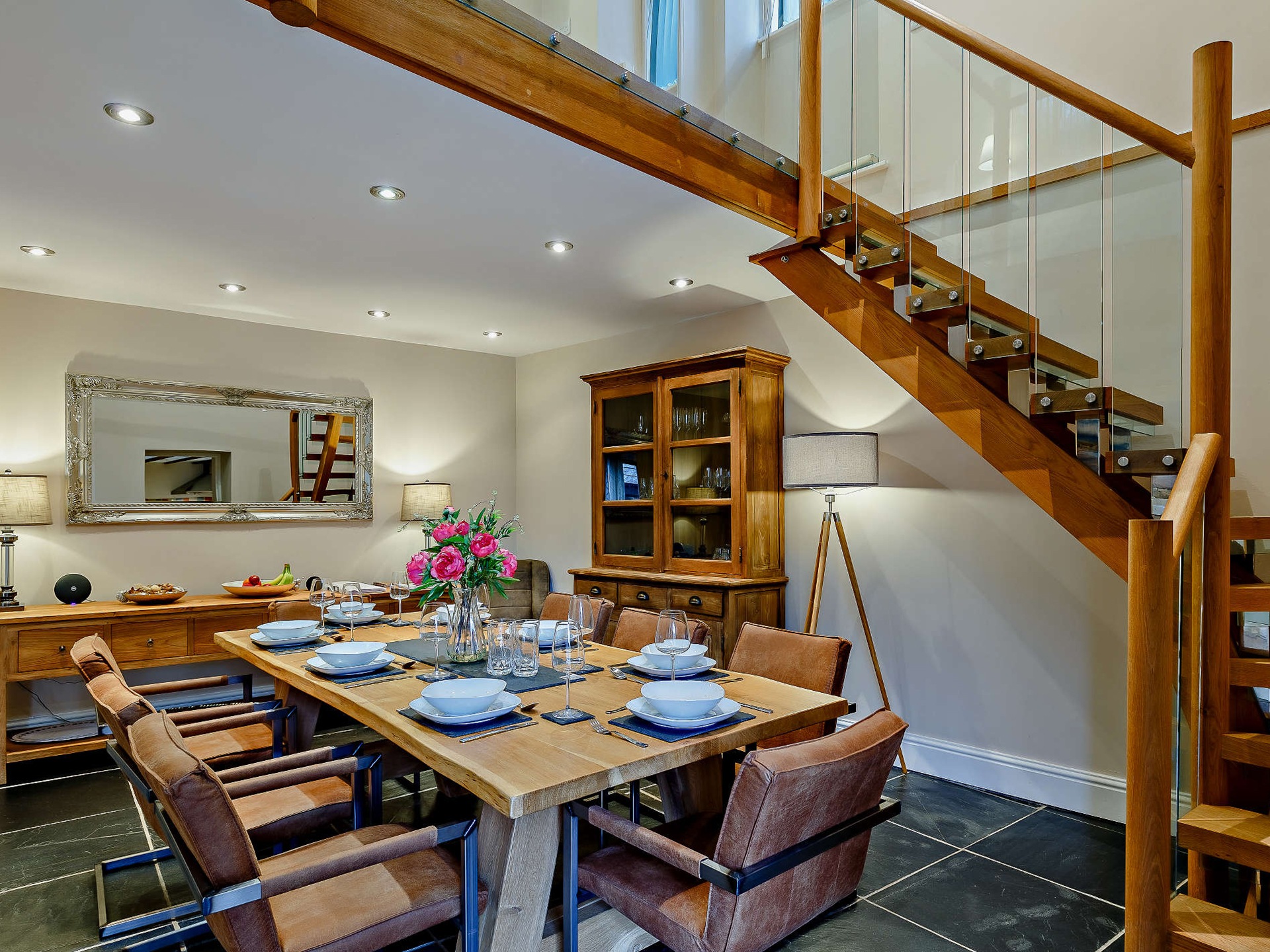
A nicely staged dining room. Image credit: Cobbledicks House
Abi Hookway says, “Once your property is listed and staged, aim to secure direct bookings to avoid platform fees. This can be done by setting up your own website or social media channels to attract guests.”
Tax
The rules about tax on income from home rental are complicated and outside the scope of this article, but Airbnb has a page on relevant UK tax laws that is a good starting point.
Controversy
The rise in short-term renting has not been without its critics, with campaign groups like Generation Rent arguing that in some parts of the country the rise in properties being used for short-term rental has pushed local people out of their communities. This has led to increased regulation in some places, and these concerns are behind the plans for a national register of short-term rental properties.
Advice and support
If you’re still determined to get in on the short-term rental market, there are several useful online forums where Airbnb hosts share tips and advice.
Check out the Airhosts Forum. There’s also a list of local Airbnb host forums here. There are some helpful Facebook groups too, such as the Airbnb Host Community UK.
The Professional Association of Self-Caterers UK is a membership organisation that offers support and advice to its members, and might be worth joining if you are going “all in” on the hosting.
Another option is the Short Term Accommodation Association.
Next read…
Here’s our round up of Passive Houses you can rent out.
Drool over this gorgeous barn conversion that’s available to book.

